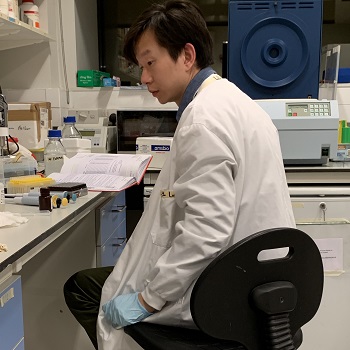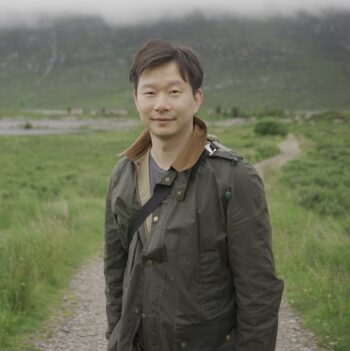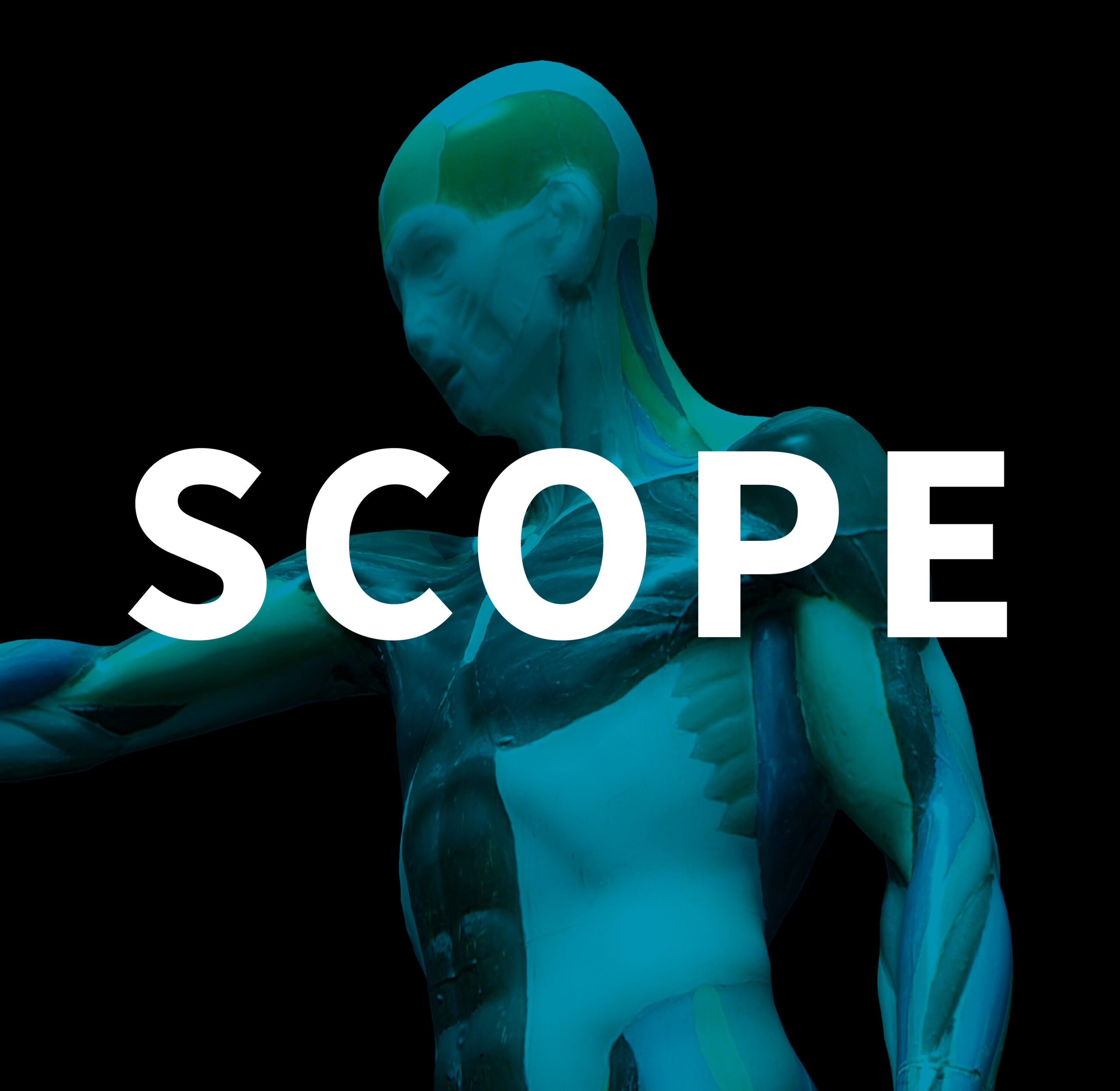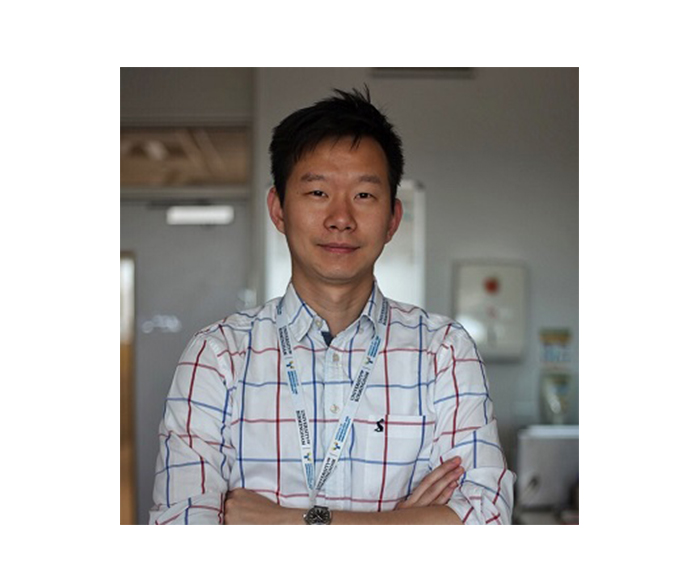January is ‘Love your Liver’ month and we’ve been highlighting liver research taking place across Edinburgh Medical School. We chatted to Edinburgh graduate, Dr Wei-Yu Lu, MRC Career Development Fellow and ESAT Fellow, based in the Centre for Inflammation Research.
What have you been up to since graduation?
After obtaining my BSc Medical Sciences degree at the University of Edinburgh in 2010, I was lucky enough to be supported by the University through international scholarship to study a PhD on liver stem cells and regeneration. I then took up a postdoctoral researcher position at the University of Edinburgh after my PhD.
During my post-doctoral research, I was very honoured to have had the opportunity to work with many leaders in the stem cell and regeneration field under the United Kingdom Regenerative Medicine Platform (UKRMP). This has broadened my research perspective and I moved to the University of Birmingham in 2018 to set up my independent research group looking at how immune cells from the adaptive immune system affect liver stem cell regeneration.
In 2021, my lab relocated to the Institute of Regeneration and Repair in Edinburgh, a research institute with an overarching aim of understanding tissue regeneration and repair to advance human health, which fits perfectly in line with what my own research aims.
Why did you choose this career path?
 To be honest, I never dreamt of being a scientist when I was a kid. A career in cutting-edge science seemed distant for me during my childhood time in Borneo.
To be honest, I never dreamt of being a scientist when I was a kid. A career in cutting-edge science seemed distant for me during my childhood time in Borneo.
It all started with the thought of wanting to know a bit more about stem cells after completing my undergraduate degree in the UK. That was in fact the main reason I came to Edinburgh for my undergraduate studies but then realised that stem cells and regeneration is more of a postgraduate topic/subject.
That led to my urge to do a PhD. My eagerness for finding out more about a topic seems never-ending because there is always more to understand in science. Eventually this guided me towards my current research career path.
I also enjoy experimenting and trying out new methods to improve things. The thought of “try and see what will happen” always come to my head. I think that’s why I ended up doing what I do today.
What is your current research focus?
My current research investigates how a type of immune cells from the adaptive immune system, called CD4+ T cells, affect how the liver regenerates. Unlike most organs, the liver has a fascinating regenerative ability: it can regain its original mass even after parts of it have been removed. However, this regeneration ability often fails in severe or chronic liver diseases. We try to understand whether CD4 T-cells can control the fate of stem cells in the liver and how we can improve liver regeneration in the setting of chronic liver diseases.
We also have a focus on a disease of the bile ducts called primary sclerosing cholangitis (PSC). One of the main functions of the bile ducts is to drain the bile away from the liver. In PSC patients, their bile ducts become inflamed and the drainage of the bile will be affected, leading to liver damage. The cause of PSC is unknown but it is thought to be immune related. We want to understand what happens to regulatory T cells (Tregs), a type of CD4 T-cells that modulate the immune system behave when the bile ducts are damaged, whether the change in Tregs contributes to this disease.
What are your hopes for the future?
Firstly, like everyone else, I hope we can return to normal after the Covid-19 pandemic! So much has changed and I miss our ways of living and working before.
Of course, I would like my research to be successful and for our lab findings to be used to improve human health one day. Research is a lengthy process and we need support from the government, funders, research institutions, scientists, clinicians, patients and donors who willingly offer to participate in research and trials.
I also hope that there will be improvements in the academic research career framework and environment, including job security, equality in race and gender, and less bias in research. Job security is a great concern for junior researchers, especially PhD students and post-docs.
Junior researchers often feel stressed and concern about their career and job security because they are employed on fixed-termed contract. This has led to many talented young researchers deciding to leave academic research. I hope the academic research career structure can improve one day, provide better job security for young researchers, and let the researchers focus on the science without worrying too much about losing their jobs every three to five years!
What do you enjoy doing in your free time?
 Moving around these years has made me realise the importance of family support and backing. In my free time, I like to have short trips to explore the nice hills and lochs around Scotland with my family to maintain a healthy work-life balance. Edinburgh is beautiful and perfectly set up for that!
Moving around these years has made me realise the importance of family support and backing. In my free time, I like to have short trips to explore the nice hills and lochs around Scotland with my family to maintain a healthy work-life balance. Edinburgh is beautiful and perfectly set up for that!
Any advice for students looking to get into a career in medical research?
Ask around for a short lab placement project if you want to have a “taster” about how working in the lab feels like. You might like it or realise it’s just not the right thing for you. As most of the research is done in the lab, you never know until you try!
Research profile: Dr Wei-Yu Lu




Leave a Reply